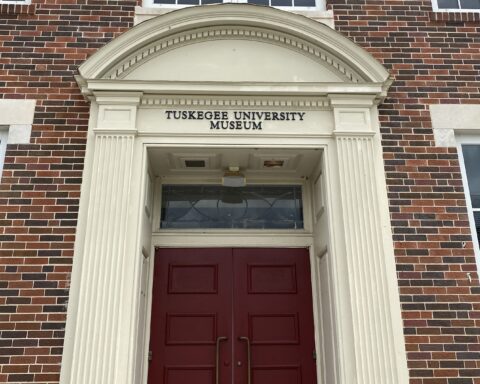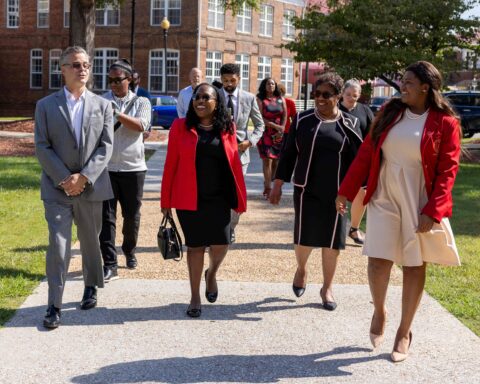By Tuskegee University
As more colleges and universities launch data science courses and programs, there is an increasing effort to initiate instructional programs in Big Data Analytics and Artificial Intelligence (AI). Here at Tuskegee University, the Caring Foundation of Blue Cross and Blue Shield of Alabama and Proctor & Gamble (P&G) have awarded the University a grant to provide STEM majors in the pre-med track with practical knowledge and robust training in emerging technologies.
Dr. Mohammed Qazi, associate dean for Research and Outreach in the College of Arts and Sciences, led the effort in developing and submitting grant proposals to the Caring Foundation and P&G. College of Arts and Sciences dean, Dr. Channa Prakash, served as co-author to the grant’s initiative.
“With the new funding, we plan to launch many instructional activities in these areas to empower our students with additional knowledge and expertise that would better prepare them for the 21st workforce, which demands familiarity with big data and artificial intelligence,” explained Prakash.
“Big Data Analytics and Artificial Intelligence are areas making incredible advances impacting our daily lives, providing new applications in every area and pushing the frontiers of science and technology,” he continued. “Every unit in the College of Arts & Sciences ranging from humanities, arts, social sciences, behavioral sciences, mathematics to natural sciences can see the impact of machine learning, big data and AI. Faculty, especially those working on cancer research, are already using some of these tools in their biomedical research.”
“Data Science and AI are highly multi-disciplinary, and so participating students will gain competencies in multiple STEM areas like statistics and coding. Moreover, Data Science transects many areas, and so students from different disciplines whether related to STEM, Health, Humanities, and many others will benefit from the program,” added Qazi.
African Americans constitute a mere five percent of physicians and three percent of data scientists in the U.S. The representation of African Americans in medicine with relevant knowledge of data science and AI is even lower. The emerging data-intensive health trends and technologies require medical trainees to gain experience in these areas.
Under the grants, both initiatives will provide minority students with practical knowledge of these two fields, data science, and AI through a year-long professional development. The project will meet the following four criteria: career development, experiential learning, innovation, and cross-functional collaboration.
Participating students in the context of competitive medical school preparation will have a deeper understanding and knowledge of data science analytics and AI techniques. They will also have hands-on experiential opportunities to understand and experience the data science life cycle and construct models to predict forecasts and communicate results.





